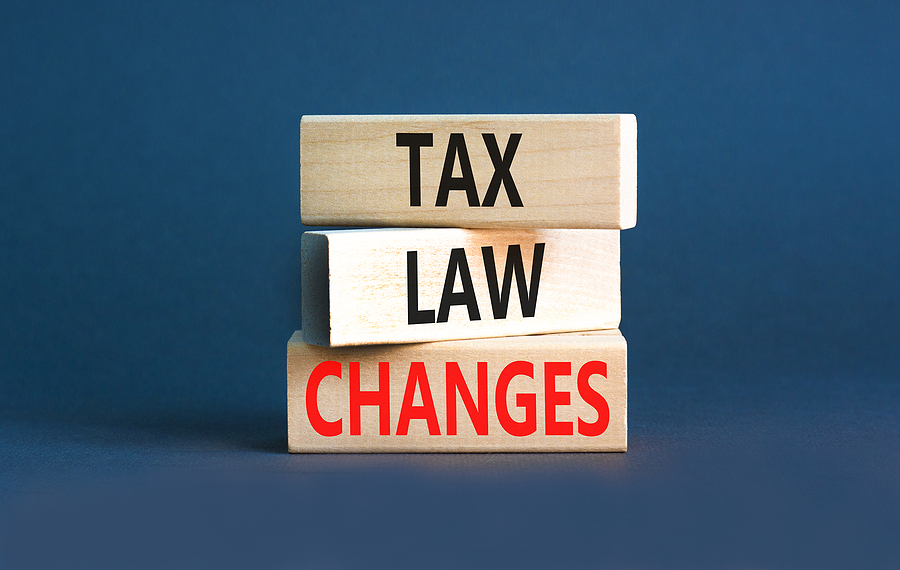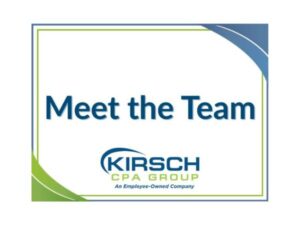Tax Update: What the “One Big Beautiful Bill” Means for You
Sue Schloemer
Jul 07, 2025

On July 5, President Trump signed the One Big Beautiful Bill Act (OBBB) into law—a sweeping tax reform package that makes several key provisions from the 2017 Tax Cuts and Jobs Act (TCJA) permanent, introduces new deductions, and rolls back many clean energy incentives. Whether you’re an individual taxpayer or a business owner, here are some highlights you should know:
For Individuals
The OBBB preserves lower tax rates and a higher standard deduction, while introducing new, targeted deductions for families, seniors, and wage earners. It also temporarily raises the SALT deduction and imposes new limits for high-income taxpayers.
Key Highlights:
- Tax Rates & Standard Deduction: TCJA’s lower tax brackets are now permanent. So are the larger standard deductions – $15,750 for single filers and $31,500 for joint filers in 2025 (indexed for inflation in future years)
- SALT Deduction Increase: The itemized deduction for state and local taxes (SALT) increases to $40,000 in 2025, phasing down for those earning over $500,000. The deduction increases slightly each year through 2029, then reverts to $10,000 in 2030
- New and Expanded Deductions:
- Seniors (65+): Temporary $6,000 deduction (2025 – 2028), phased out at higher income levels
- Above-the-Line Deductions (2025 – 2028), phased out at higher income levels:
- Tips: Up to $25,000/year
- Overtime: Up to $12,500/year (or $25,000 if married filing joint)
- Car Loan Interest: Up to $10,000/year
- Child Tax Credit: Increased to $2,200 (nonrefundable) and $1,400 (refundable)
- Charitable Giving:
- Non-itemizers: Deduction up to $1,000 ($2,000 if married)
- Itemizers: Must exceed 0.5% of income to begin deducting
- High-Income Limitations: New cap applies to itemized deductions for taxpayers in the 37% tax bracket
- Estate & Lifetime Gift Tax: Makes the enhanced exemption from the TCJA permanent and increases to $15M per person starting in 2026, indexed for inflation
- Trump Accounts: New tax-advantaged savings accounts for minors, structured similar to IRAs, designed to promote early savings and long-term financial growth. Allows for contributions up to $5,000 per year. Includes a pilot program with $1,000 contributions for children born between January 1, 2025 and December 31, 2028
For Business Owners
The OBBB delivers a range of business-friendly provisions aimed at supporting growth, innovation and long-term investment. From enhanced expensing rules to a permanent QBI deduction, the bill solidifies several favorable tax provisions that were previously temporary.
Key Highlights:
- Depreciation & Expensing:
- 100% bonus depreciation made permanent (effective Jan. 19, 2025)
- Section 179 limit increased to $2.5 million
- Additional first-year depreciation deduction equal to 100% of Qualified production property (nonresidential real property used in manufacturing)
- Research & Development (R&D):
- Immediate expensing for domestic R&D restored permanently (starting in 2025)
- Small businesses can apply retroactively to 2021
- Elective acceleration allowed for unamortized research costs from 2022–2024
- Additional Business Provisions:
- Qualified Business Income (QBI) Deduction: The QBI Deduction for owners of pass-through entities and sole proprietors becomes permanent and stays at 20%, with broader phase-in and inflation-adjusted $400 minimum deduction
- Qualified Small Business Stock: Increases the exclusion from gain on small business stock to 75% for stock acquired after the date of enactment of the bill and held for at least four years, increasing to 100% if held five years
- Excess Business Loss Limitation: Made permanent for noncorporate taxpayers
- Business Interest Deduction: Permanently reinstates EBITDA for purposes of determining the business interest limitation, allowing for greater current deductions
- ERC Refund Claims: Prohibits ERC refunds requested after January 31, 2024, even if the claim was previously filed timely
Clean Energy Incentives Are Being Rolled Back
Many clean energy credits introduced in recent years are being phased out. If you’re planning green investments, you may want to act before these benefits expire.
Notable Phaseouts:
- EV and clean fuel vehicle credits end after September 30, 2025
- Residential and commercial energy-efficiency credits begin expiring December 31, 2025
Administrative Updates
Several updates aim to modernize outdated thresholds and ease compliance burdens.
- 1099-K: Threshold restored to $20,000 and 200 transactions for third-party payment processors
- 1099-MISC/NEC: Reporting threshold increased from $600 to $2,000; indexed for inflation after 2026
Let’s Talk About Your Tax Strategy
The OBBB delivers more than $5 trillion in tax cuts and is projected to increase the federal deficit by $3.8 trillion. As with any major legislation, additional guidance and clarifications are expected, and we will be closely monitoring developments. With wide-reaching changes impacting both individuals and businesses, proactive tax planning is more important than ever. These provisions could significantly affect your 2025 tax return and your broader financial strategy. Our team is here to help you evaluate the impact and plan accordingly—contact Kirsch CPA Group to schedule a personalized consultation.
Schedule an appointment to learn how we can support you
© Copyright 2025. All rights reserved.
More Resources

About The Author
Sue enjoys helping clients succeed. Her breadth and depth of accounting knowledge combined with over 25 years of…
Sign Up for Email Updates
Tags
Accounting & Financial News

Why Silence About Fraud Only Makes It Worse
Business owners generally experience a range of emotions — including anger, bewilderment and embarrassment — if fraud…




